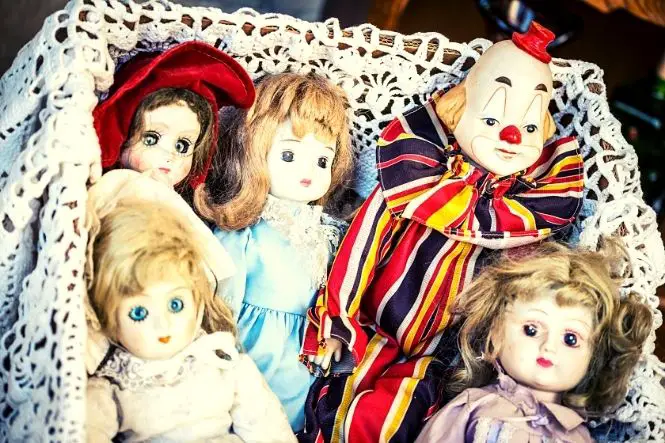Kids Behaviour spoke to a mother whose child suffers from Obsessive Compulsive Disorder. Wishing to protect her identity, here is what she told us:
Living with an obsessive compulsive child is an interesting experience – sometimes funny, sometimes frustrating, sometimes exhausting – but never dull.
Table of Contents
What is Obsessive Compulsive Disorder?
Obsessive Compulsive Disorder – or OCD – has become more commonly known since the likes of David Beckham admitted to having it but not many people truly understand the extent to which it can disrupt the lives of those who have it.
Very broadly speaking OCD is an anxiety condition.
We have all experienced the feeling of having to go back and check that we’ve turned the iron off at the plug or locked the front door even though we are certain of having done so. OCD creates similar feelings but to an extreme level. They feel that if an action is not done or checked, then something ‘bad’ will happen. It is difficult for them to articulate what that something will be, but the anxiety will build up inside them to such an extent that they ‘have’ to do these actions or compulsions to the extent that they become obsessive.
First Signs of an Obsessive Compulsive Child
We first noticed our child – let’s call him Jack (not his real name) – had obsessive tendencies when he was very little. He used to have to have his toys lined up in bed and wanted his bedroom light-switch to be turned off and on a certain number of times before he went to sleep. If it didn’t happen, he would become very upset.
Developing Obsession and Compulsions
As he grew older there seemed to be no sign of the OCD and we assumed it was merely a childhood OCD syndrome which is common in young children and which they naturally grow out of. Then as he hit teenage years, we suddenly faced a completely different ball-game. One day, Jack had what seemed to us some kind of nervous break-down where he said he thought he was turning mad. After a long weekend spent trying to calm him down and trying to get him to tell us what was wrong, he managed to explain what was soon diagnosed to be Obsessive Compulsive Disorder.
Patterns of OCD
No two OCD children behave in exactly the same way but all display common patterns or ‘symptoms’ of the condition. OCD sufferers are trying to reduce feelings of extreme anxiety by controlling the world around them to try to also control events. Scientists don’t exactly know what causes it but they do know that many people suffer from it.
Obsessions
Obsessions mainly take the form of thoughts in the sufferer’s mind. They are hidden, so impossible to detect, but can wreak havoc in terms of mental stability. Jack says that up to 80% of every day is spent thinking OCD thoughts. This could take the form, for instance, of saying certain phrases over again in his head or of making himself avoid thinking or saying certain words.
Compulsions
Compulsions are actions or rituals which the OCD sufferer must perform in order for their day or future events to be ‘right’. Often it is impossible for them to rationalise or even articulate what ‘right’ means or what events they feel may be affected, but it causes them heightened anxiety (a bit like a panic attack) if they are prevented from carrying out the tasks.
Obsessions and Compulsions Together
Most commonly, OCD takes the form of obsessions and compulsions together, so Jack for example might tell himself that if he thinks of a certain word whilst he is reading a passage in a book, then he will have to re-read it again and again until it is ‘perfect’. This is just one of a thousand examples I could have chosen.
Seeking Help for an Obsessive Compulsive Child
After we discovered Jack had OCD we spent time with a child psychologist, a support group for other parents and self-help books from the library. We began learning that although there is a lot of help out there and it is possible for the condition to be controlled, Jack might very well have to cope with it for life.
Living with an OCD Child
No two days seem the same. Jack is not an ‘extreme’ sufferer but we have come to learn that things in his bedroom are a ‘problem’ area in that we carefully negotiate things being touched, cleaned or moved, because the displacement of certain objects causes massive anxiety. Similarly we watch for signs when he is finding it difficult to cope and a lot of time is spent in support and in ‘managing’ the condition.
Challenges
One of the biggest challenges at the moment is in the seemingly simple carrying out of homework. Unfortunately for Jack, his OCD means that he finds it extremely difficult to read anything ‘normally’ and also to write down certain things. It might take him an hour therefore, to read one page of a book because the OCD dictates rules which prevent him from turning a page or from moving on to the next paragraph and a piece of writing will take much longer than it should because if he comes across a certain word (and these word can change from day to day or week to week), he has to repeat that word several times before he can continue. This makes study difficult and the work messy.
As a parent there are times when it can be intensely difficult watching your child have to cope with OCD. All any of us want for our children is that they are ‘normal’, healthy and happy, and to realise that this may not be the case for your own offspring is hard. Living with OCD is incredibly exhausting for the sufferer but also for the carer too. It can be frustrating living with someone who has to do seemingly strange things, and difficult to understand.
Positive Aspects of OCD
On the positive side, people who suffer from OCD are often intelligent, articulate and creative people. Jack’s OCD has led him, we believe, to be a highly empathetic character, much more sensitive to what others might be feeling than most regular teenage boys. We also feel that in learning to cope with Obsessive Compulsive Disorder at a young age and by using tools he is being taught to control it such as ‘mind-switching’ and deep breathing exercises, it will stand him in good stead for the future as he will be in a good position to cope with high pressure demands of the workplace. Jack needn’t let the condition hold him back in life and although it seems difficult at times, we do see a very positive future for him.
Working Together
There are good days, bad days and occasionally awful days, but as a family we are working closely with Jack’s child psychologist and with Jack himself to try to ‘beat’ the OCD and help him through. There is a lot of help out there and treatments such as Cognitive Behavioural Therapy (CBT) have proven to be very effective methods of controlling and perhaps even ‘beating’ the condition.



